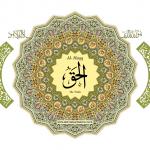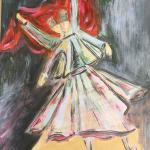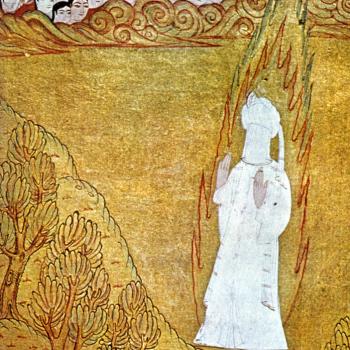In our tradition, it is sometimes said, “Although Mevlana is not a prophet, he does have a book.” Another way of expressing the same idea is that the Masnavi is the Qur’an in Persian.
But what do those statements really mean? What kind of book is the Masnavi, and what is its relationship to the Qur’an?
Something the Qur’an and the Masnavi both have in common is that they are not books as we normally think of books being written. Both originated as oral expressions, and oral texts are different from written ones. Whereas written texts “set things in stone”, laying words like bricks on paper, oral texts are more like jazz standards: individual performers provide their own interpretation of familiar songs. In the same way, oral texts are open and flexible. They work more like human memory, with its rich layering of color, sound, smell and touch around points of factual information. Unlike the flat 0s and 1s of a computer hard drive, the human mind operates at multiple levels simultaneously.
In that sense, the Qur’an and the Masnavi are also not books to be read in the sense of gleaning information. Rather they are more like maps or codes, with their own symbols and decryption keys pointing the way to the other world from this world. Mevlana says:
The peerless God has made all the six directions a theater
for the display of His signs to the clear-seeing,
so that, whatever animal or plant they look upon,
they may feed on the meadows of divine Beauty.
And so He said to the mystic companions,
“Wherever you turn, there is the face of God.”
The meadows of divine beauty belong to the realm of the Names or divine qualities. This world is not to be found up in heaven, out in space or in the hereafter. It is right here, right now, immanent in the material world. For example, imagine visiting the rose gardens of the grounds surrounding Mevlana’s türbe in Konya. Now imagine seeing another set of gardens superimposed over the first: a fantastic and mysterious landscape filled with swooping, jewel-bright birds, sparkling trees and a fragrance of the most delicate flowers.
Rumi says:
“Behold the garden of the heart, green and moist and fresh, full of rosebuds and cypresses and jasmine.”
Spiritual perception is the key that opens the door to this dimension. And spiritual perception is developed through doing the work of the Path: in essence, repenting for the sin of worshiping the false self and remembering the essence of our true being. As Shaikh Kabir Helminski has said, “Sufism does not refer to information but to transformation.”
It is a blessing to have works like the Masnavi to accompany us on the journey of transformation because Mevlana’s stories provide a framework for understanding and giving meaning to the experiences we have along the way. Mevlana offers stories that align our life with the vision of the Qur’an: a unified consciousness able to perceive through and beyond the veils of conditioning to the Divine Reality of oneness and mercy.
One of the stories that exemplifies this is the scene of Ali in battle at the end of the first book of the Masnavi. Imam Ali is about to deal a fatal blow to an opponent when the man spits in his face. Ali is stunned. For a moment, he hesitates. But then, rather finishing the man off, Ali throws his weapon aside. He says:
I strike (with) the sword for the sake of God. I am the servant of God; I am not commanded by the body.
This story encapsulates several of the key themes of the Qur’an itself and by extension, the Masnavi too. First, that self-surrender is the only true religion in the sight of God. Ali says, “The sword of my restraint has struck the neck of my anger, and God’s anger has come upon me like mercy. I am drowned in light, even though my roof is destroyed. I became a garden, even though I am called the Father of Dust.”
Also, Ali’s steadfast resolve to remain in remembrance even in circumstances that are the most threatening to the ego illustrates that the state of the wali transforms the states of others as well as the world around them. Ali’s words, spoken out of a sense of deep truth, touch his enemy and bring about a change in his heart as well.
The Masnavi has been called “the workshop of oneness” because it presents and illuminates the world of qualities so vividly. Mevlana invites us to make the world of the Divine Names and qualities our own mental, spiritual and metaphysical landscape.
By learning about the material world as a metaphor, as the theater on which the Divine Names manifest, we can start to build a bridge through the imagination to a relationship with deeper levels of reality. It is not just a matter of seeing the truth but of knowing and living it.












